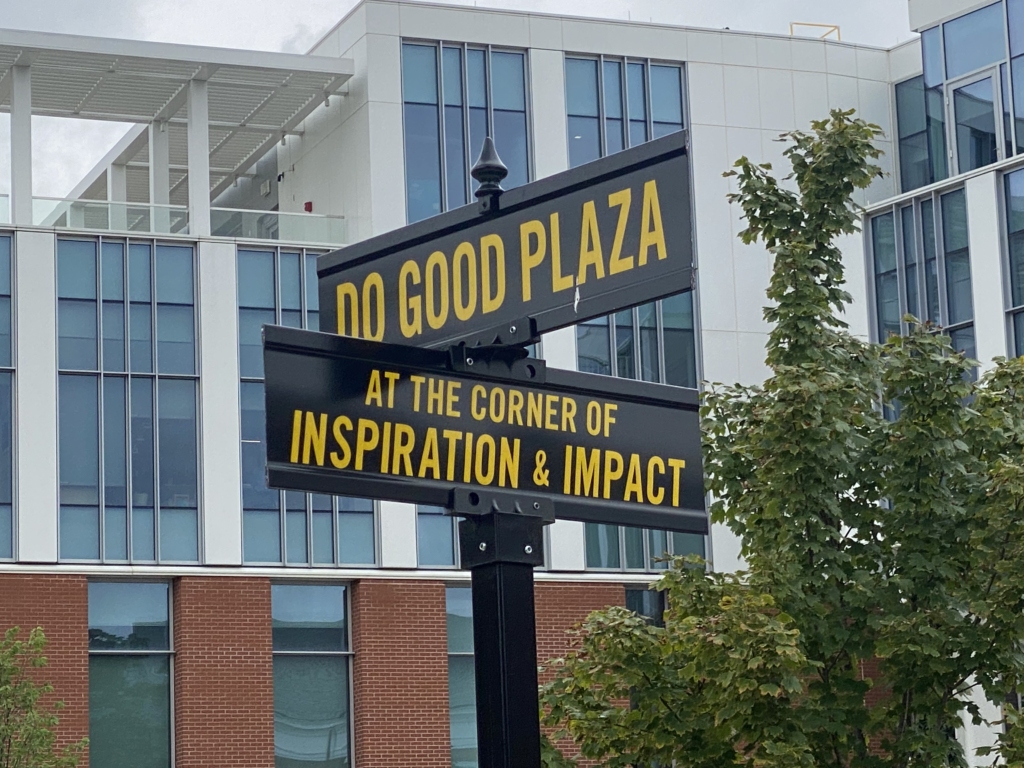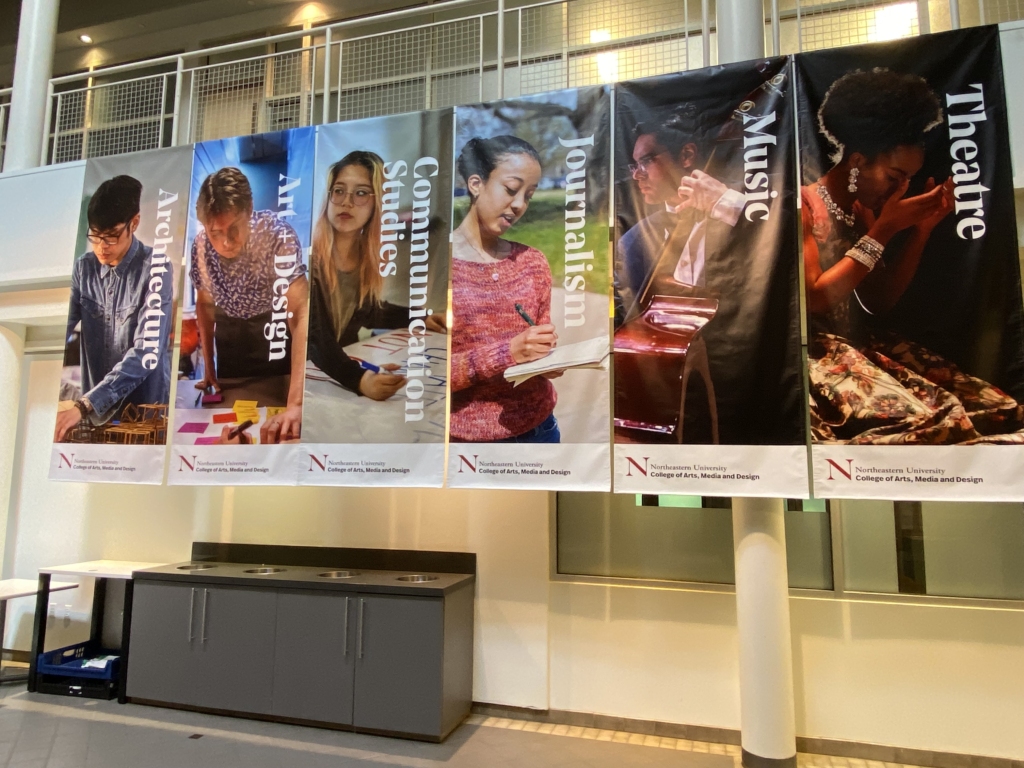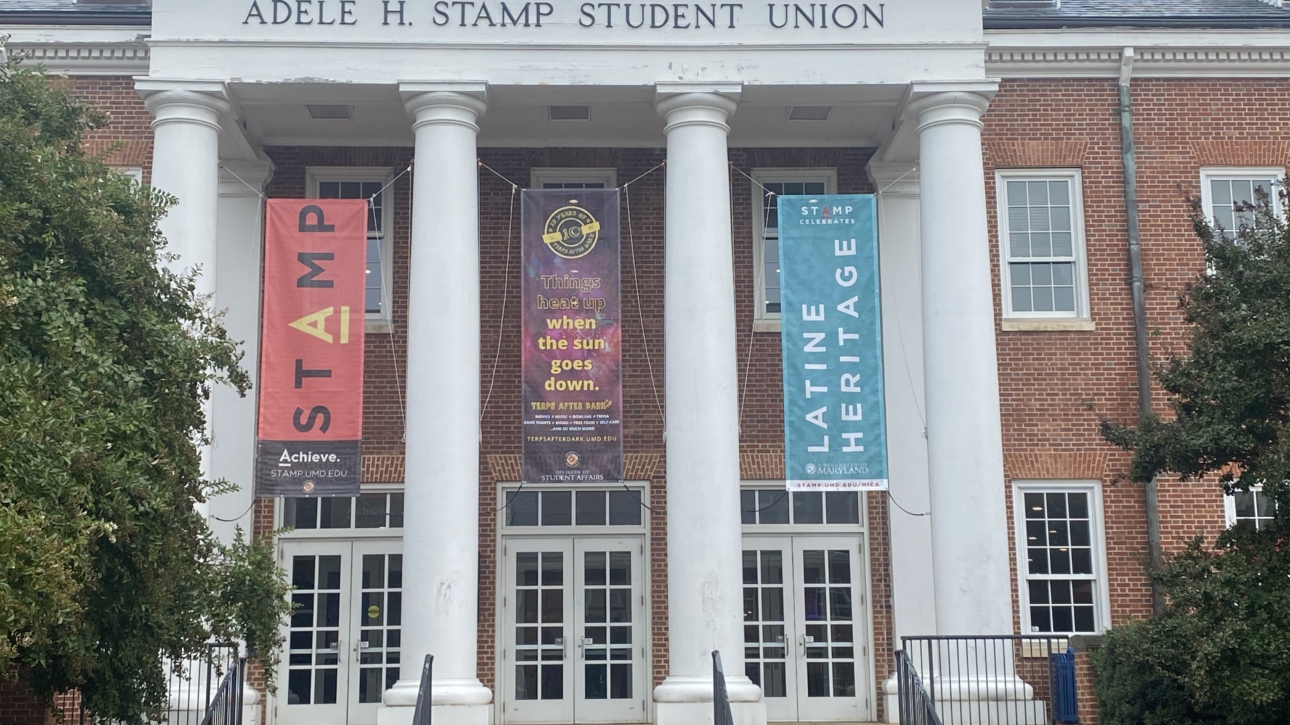Acollege tour is one of the most important experiences for high school students on their journey toward higher education. College tours are not only very informative but also fun and interesting while providing a small glimpse behind the curtain of college life. I found it offers unique insights and the opportunity to gather firsthand information about many different aspects of a school’s academic environment, campus culture, facilities, and student life. Online resources and brochures are certainly helpful but visiting a campus in person allows prospective students and their families to assess whether a particular institution is the right fit. I visited approximately 20 colleges during my junior and senior year of high school and here’s what to expect on a typical college tour.
Welcome to the College Tour
The welcome begins with information you should receive before your tour date. This usually comes in the form of an email thanking you for scheduling a tour. The welcome email should contain instructions such as the exact address of the campus and the specific welcome center or building where the tour will begin. You should also receive any special instructions such as where to park your vehicle and if there are any parking fees not covered by the college. If the parking facility is not close to the welcome center, then will be a shuttle bus for additional transportation. The tour will likely begin with an information session in an auditorium style room where staff will talk about college and answer questions. Expect to learn about the student demographic population, the cost of attendance, financial aid and scholarship awards.


Academic Programs and Opportunities
The tour will certainly explain the academic aspects of the college or university. The tour guide may give an overview of the most popular majors, unique academic programs, and research opportunities. Some tours will offer the chance to visit classrooms or labs which provides a peek at the actual learning environment. If class is not in session at the time you may be able to speak with a professor or student if one is available.
Prospective students can inquire about faculty to student ratios, teaching styles (lectures vs. seminars), and internship or study abroad opportunities. Schools with a strong emphasis on undergraduate research or experiential learning may highlight specific facilities like laboratories, arts studios, radio and television broadcasting rooms, or performance spaces. When scheduling your tour, be sure to ask about tours for your specific area of interest. Students interested in specific areas of study should ask about tours focused on explaining those academic programs and touring those buildings/rooms.
Campus Layout and Facilities
The primary focus of a college tour is to showcase the campus itself. Many colleges will provide a detailed campus map. Tour guides will escort small groups for a guided walk through of the grounds and various key areas, such as the main academic buildings, dormitories, dining halls, libraries, student centers, and recreational facilities. Prospective students and their families will get a glimpse of the campus environment to help them imagine what day-to-day life might look like. Pay close attention to how well the campus is maintained, such as the cafeteria, restrooms and how modern or outdated the facilities appear. This can be an indication of how well the college is doing financially and how well it invests in student resources.
The beautiful thing about learning is nobody can take away it from you.
B.B King
Expect a healthy amount of walking, as most tours cover a considerable portion of the campus. There may not be elevators or escalators to access certain floors and areas. Take note of the size of the campus and how spread-out buildings are as this can impact how much time it will take to get from one class to another or from a dorm to the dining hall. Take advantage of any opportunity to interact with faculty and especially current students as they can paint the best picture of the college experience from a student’s perspective.
Student Life and Activities
One of the most exciting aspects of college life is the range of extracurricular activities available, and most tours will include information about student clubs, organizations, and athletics. Whether you’re interested in Greek life, volunteer work, sports, or special interest groups, college tours often highlight the diversity of student involvement and how these activities contribute to a vibrant campus community. Visitors may also see recreational areas like swimming pools, gyms, sports fields and student lounges where social activities take place. The tour guide will often discuss how students balance academics with social life and how the campus provides a supportive community. This provides insights into the culture and personality of the school and whether it’s more academically intense, sports-driven, artistic in nature or community focused.

Dormitory Residence
For many students, living on campus is a significant part of their college experience and as well as a necessity if attending school in another state. Most college tours include a stop at the residence halls, offering a look inside a dormitory building and room. Prospective students will see the different types of housing available, from traditional dorm rooms, communal showers to suite-style or apartment-style living.
During this portion of the tour, guides often discuss campus housing policies, such as the availability of single-gender or co-ed dorms, freshman housing requirements, and options for upperclassmen. They may also talk about roommate assignments, residential advisors (RAs), and the various resources that support students in dorm life.
Dining Halls and Meal Options
Another essential part of any campus visit is the opportunity to see the dining facilities. You will definitely want to know about what kind of food options are available, especially for those with specific dietary needs or preferences such as vegetarian, gluten-free, kosher or halal. Touring the dining hall allows you to get a sense of how campus dining works and whether it’s buffet-style, à la carte or a mix of both and how meal plans operate.
If possible, many families choose to eat in the campus dining hall to sample the food and experience the atmosphere firsthand. Some schools may also have popular off-campus dining options near the campus.
Current Students and Faculty Engagement
During a college tour, there may be opportunities to interact with current students and faculty members. This interaction is invaluable, as it offers a chance to ask direct questions about the student experience, academic rigor, and campus culture. Students can share their personal insights, while faculty members might discuss the strengths of their departments, their teaching methods, and the support they provide to students.
Many colleges also offer prospective students the opportunity to sit in on a class or meet with academic advisors from specific departments. This helps students gauge whether the institution’s academic offerings align with their goals and interests.
Admissions and Financial Aid Information
Some tours conclude with the tour guide thanking for coming and giving instructions on how to make it back your car while others conclude with a session led by an admissions officer, providing key details about the application process, deadlines, financial aid options, and scholarships. This is the time to ask about what the college is looking for in applicants, such as SAT/ACT scores, extracurricular activities, and personal essays.
In some cases, prospective students might be invited to an admissions interview or given advice on how to strengthen their application. The financial aid portion often covers the types of scholarships, grants, and work-study programs available, along with tuition costs and estimated expenses.
Campus Vibe and Personal Impressions
Lastly, one of the most important takeaways from a college tour is the overall “feel” or vibe of the campus. Is it lively and energetic, or quiet and serene? Does the school seem friendly, welcoming, and inclusive? Prospective students should pay attention to their gut reaction and personal comfort level. A tour gives you the chance to imagine what it would be like to spend the next four years at that institution and whether it feels like home.
Sustainability and Green Initiatives
Many colleges today place a strong emphasis on sustainability and environmental responsibility. Expect to hear about a campus’s efforts toward eco-friendly practices, such as recycling programs, energy-efficient buildings, and green spaces. Some colleges might showcase LEED-certified buildings or discuss how they integrate sustainability into their curriculum and daily operations.
In addition, colleges might highlight community gardens, bike-sharing programs, or green transportation options, like electric shuttle buses or bike paths. This is especially important for students who prioritize environmental stewardship and want to attend a school that shares those values.
Safety and Security Measures
Safety is a major concern for many students and their families, so colleges often include information about campus security. Expect to hear about services like campus police, emergency call stations, and safety escort programs. Colleges may also discuss how they handle emergencies, whether through campus-wide alert systems or health services.
In addition to physical security, some tours provide information about mental health resources, counseling centers, and peer support networks, which contribute to an overall sense of safety and well-being. Understanding how the college prioritizes student welfare is a crucial part of evaluating any institution.
Know what you’re paying for
A college tour is an essential step in the decision-making process for prospective students. It offers a comprehensive overview of the physical campus, academic programs, extracurricular opportunities, and the campus culture. By seeing the facilities, speaking with students and faculty, and getting a sense of the overall atmosphere, prospective students can make a more informed decision about whether the school aligns with their academic goals and personal preferences. Ultimately, college tours help to determine which institutions are also the best fit for your budget when considering the tuition and other costs of attendance.
Be sure you know What to Bring on a College Tour.

